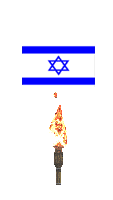legouithameur
رئيس حكومة المنتدى


عدد الرسائل : 1146
العمر : 61
تاريخ التسجيل : 25/02/2008
 |  موضوع: Nouns /Lesson موضوع: Nouns /Lesson  الخميس مارس 20, 2008 10:59 pm الخميس مارس 20, 2008 10:59 pm | |
| NOUNS
Spelling
All proper nouns take a capital letter in English, together with the days of the week, months, languages, nationalities, historical periods and school subjects.
Ex: Maths Monday the Victorian period Shakespearean actors
Gender
1. Most nouns in English are neuter (pronouns it/they) unless they describe people, then they are masculine (pronouns he/they) or feminine (pronouns she/they).
Animals are neuter. BUT if an animal is considered to be a special friend or part of the family, the of the animal can be considered as important and referred to as he or she.
Ex: Our dog died when he was nineteen.
My cat is very fussy. She only eats salmon.
2. Some words have got two forms, one for the masculine and one for the feminine.
Ex: boy – king – queen husband – wife
Some animal names have got a feminine and a masculine form too
If the of the animal is unimportant. A neuter pronoun can be used.
Ex: Look at that erel. It’s perched on the roof.
3. Most nouns have the same form for masculine or feminine
Ex: pianist player cousin writer
4. Some nouns are usually considered to be feminine. Ships and other vehicles when regarded with affection or respect. Countries when referred to by name are also normally considered feminine.
Ex: The ship struck an iceberg and she sank.
Scotland lost many of her bravest men in two great rebellions.
| Compound nouns
1. The second noun can be used as an adjective. It then behaves like an adjective.
Ex: a door on a car a car door
Someone who collects books a book collector
A net used for fishing a fishing-net
The use of the hyphen (-) is not clear. As a rule, if the first part ends in –ing or if there are prepositions, use a hyphen
Ex: a shopping-bag a sister-in-law a frying-pan
2. Normally the last word is made plural.
Ex: car doors, shopping-bags
BUT mothers-in-law, points of view: because the second noun is uncountable and comes after a preposition.
BUT men students, because with man and woman both words are made plural.
[ندعوك للتسجيل في المنتدى أو التعريف بنفسك لمعاينة هذه الصورة]
Plural forms
1.The plural of countable nouns is formed by simply adding an –s.
Ex: book – books
Except aircraft, quid which do not change in the plural.
2.However: A) a noun ending in y after a consonant becomes –ies
Ex: baby – babies
B) 12 nouns ending in f or fe takes ves in the plural. They are:wife, life, knife, wolf, self, calf, shelf, leaf, loaf, thief, half
C) A noun ending in o, ch, sh, ss or x adds es
Ex: a watch – watches
Except: words of foreign origin or abbreviated words ending in –o
Ex: piano – pianos radio – radios kimono – kimonos
biro – biros photo - photos
3.Some plurals are irregular
child-children, foot- feet, goose -geese, man - men, woman -women, mouse - mice, person -people, tooth -teeth, fish - fish, sheep - sheep
4.Uncountable nouns are generally not found in the plural, unless in the context they refer to some objects which are countable.
Ex: He dropped all the glasses on the floor. (Here = drinking glasses)
5.Certain nouns referring to a group of people, animal or objects are always plural, accompanied by a plural verb. They are: cattle, glasses (spectacles), police, scissors, trousers, family, etc…
Ex: The cattle have escaped.
My family live in Bou Saada.
[ندعوك للتسجيل في المنتدى أو التعريف بنفسك لمعاينة هذه الصورة]
The possessive case
1.The possessive case is used when describing something that belongs to a person, an animal, a country and in some expressions of time.
Ex: the ’s book Souad’s doll Algeria’s oil production the dog’s bone
last week’s magazine
! If the owners are plural, then the apostrophe is placed after the S, if the plural finishes with S.
Ex: the boys’ sandwiches the men’s book
2.In all other cases ‘of’ is used. Ex: the wheel of the car
3.In some expressions of time:
Ex: a four days’ holiday ( four days’ is in the possessive case) = a four-day holiday (four-day is used as an adjectival expression and is singular)
|
| |
|

